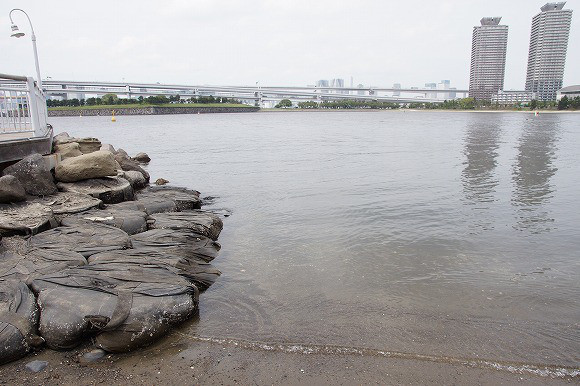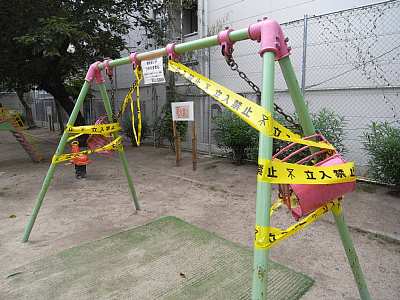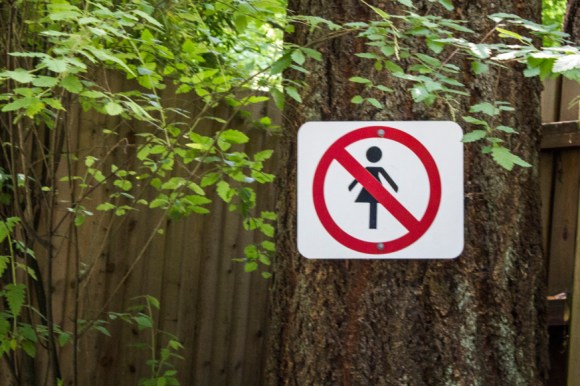
Japan has gone through a lot of changes in the past half-century. It emerged from the end of World War II willing to become a part of the international community, but not willing to give up some of its stranger quirks, some of which are part of the reason that we love it for today.
But some of those quirks are more annoying than others, and they’ve slowly faded away as people have realized they’re not really necessary. So with that in mind here’s the list of five things that were once taboo in Japan, but are now (mostly) okay today. Read on and find out if something you do would have once been frowned upon!
This list comes from the Japanese compilation site Naver Matome, where they collected tweets and other quotes showing changes in Japanese people’s thoughts over time.
Here’s the list, starting with…
#5. Pregnant women using onsen (hot springs)
From 1982 to 2014, the Japanese Ministry of the Environment had written into law that pregnant women should not be allowed into onsen. The fear was that the baby would get “boiled”, or birthed immediately, or… something else stupid.
It wasn’t until last year that they finally took another look at why exactly they had that law in the first place, causing them to pretty much immediately get rid of it citing a lack of evidence. When asked why the law was there originally, the only answers given were vague mentions of “foreign reports” and “old wives’ tales.” Pretty much as far away from science as you can possibly get.
Another well-known onsen taboo, the ban of anyone with tattoos, is also currently undergoing scrutiny. Who would have guessed that the warm, soothing onsen would melt away so many of Japan’s societal taboos?
#4. Using cell phones in a hospital
This is another one that has only changed in the past year. Since 1997, ever since the widespread use of mobile devices, the Ministry of Internal Affairs and Communications has banned cellphone use while inside a hospital, fearing that it would interfere with medical equipment. Up until recently, using a cellphone in a hospital would immediately get you glared at by approximately everyone inside.
But with the phasing out of 2G phones and the improvement in medical technology, the risk posed to patients basically dropped to zero. However it still wasn’t until August 2014 that the law was done away with, now only outlawing cellphone use while near surgery rooms and intensive care units. I think as long as we all get our sweet, sweet Angry Birds while in the waiting room, we have no complaints.
This also goes hand in hand with the relaxing of cellphone use near “priority seats” on trains in Japan. The “no cellphone use” rule has been scrapped in the Kansai area since last year as well. Other areas are wary to follow suit however, citing “customer unease” as the reason. Part of eliminating taboos is educating people, so Japan needs to come up with a cute mascot to tell everyone that modern cellphones pose no danger to anyone in priority seating.
#3. Swimming in Tokyo Bay

Ever since the 1960s, Tokyo Bay has had the reputation of not being the cleanest body of water in the world. Blooming red in the summer didn’t really help its case, and it all around was just not pleasant to look at. The Tokyo government has warned people not to swim in it, and especially not to put their faces in the water either.
However, last summer they conducted a water test and found that the bay wasn’t nearly as polluted as believed. The secret behind its success? Oysters! Lots and lots of oysters cleaning up the water and making it safe to swim in and dunk your siblings underwater in again. Of course changes in sewer technology and regulations also helped, but who cares about that? Have you seen those amazing oysters?!
Swimming in Tokyo Bay was once unthinkable, but is now extremely common. There is a “swimming zone” set up with changing areas, coin lockers, lifeguards, and nets to keep out any stingrays that might want to check out what all the fun is about.
#2. Playing ball in parks
I have to admit I never knew about this special one. Apparently, up until recently most parks in Japan didn’t allow people to play and kind of ball games inside them. Baseball, soccer, just throwing a ball back and forth, all of it would presumably result in a man coming up to you, blowing a whistle, and demanding that you stop at once for the “safety of everyone in the park.”
▼ These pictures outline the park policies, including no ball-playing of any kind, and threatening to call the police if they see you with a soccer ball.
(Click on the pictures for the enlarged version. Translation of text below.)
“Adult: You are not allowed to play ball in the park.
Child: Okay then I’ll just play on my smartphone.
Adult: Playing on your phone makes you stupid!
Child: …”
Finally, some Japanese parks are actually allowing kids to do things besides just stand around and look at the trees. As long as they have a “play leader” (adult chaperone) watching over them and making sure they don’t get too rowdy or start bothering people, they’re allowed to play with their newfangled balls without fear of being whistled at.
#1. Autonomy for women
This is one of the biggest changes to happen in Japan during the past 50 years. While the rest of the developed world mostly moved on to equality between the sexes as much as possible decades ago, Japan has been dragging its feet the entire way, constantly trapped in 1950s gender roles and stereotypes.
Up until very recently, women were considered taboo in many different aspects of Japanese life, from being sushi chefs to even just climbing certain “holy” mountains. And don’t forget that the birth control pill has only been legal in Japan for sixteen years, despite being available in the rest of the world since 1960.
Still, Japan has been trying hard to bridge the huge gap between men and women that has plagued it for so long. Sometimes it gets it right, sometimes it gets it wrong, but at least women are no longer thought of as “impure” or “inferior” as they were not so long ago.
So that’s it for this list of things that are (mostly) no longer taboo in Japan. What do you think will be the next taboo to disappear? Public displays of affection? Taking pictures at concerts? Something else? Let us know in the comments section below!
Source: Naver Matome
Featured/top image: Flickr (David Goehring)





 Japanese companies banned from locking cellphone SIM starting this autumn
Japanese companies banned from locking cellphone SIM starting this autumn Thai university trials “mobile phone lane” in effort to increase student safety
Thai university trials “mobile phone lane” in effort to increase student safety The end of the pay phone? Japanese government considering getting rid of phone boxes
The end of the pay phone? Japanese government considering getting rid of phone boxes Four things women are banned from doing in Japan【Women in Japan Series】
Four things women are banned from doing in Japan【Women in Japan Series】 Onsen in Nagano will now welcome foreigners with tattoos, as long as they patch ’em up
Onsen in Nagano will now welcome foreigners with tattoos, as long as they patch ’em up Disney princesses get official manga makeovers for Manga Princess Cafe opening in Tokyo
Disney princesses get official manga makeovers for Manga Princess Cafe opening in Tokyo Beautiful new Final Fantasy T-shirt collection on the way from Uniqlo【Photos】
Beautiful new Final Fantasy T-shirt collection on the way from Uniqlo【Photos】 Is the new Shinkansen Train Desk ticket worth it?
Is the new Shinkansen Train Desk ticket worth it? Randomly running into a great sushi lunch like this is one of the best things about eating in Tokyo
Randomly running into a great sushi lunch like this is one of the best things about eating in Tokyo Foreign English teachers in Japan pick their favorite Japanese-language phrases【Survey】
Foreign English teachers in Japan pick their favorite Japanese-language phrases【Survey】 Visiting the Kikyoya Shingen Mochi theme park takes some planning–but it’s a stop worth making!
Visiting the Kikyoya Shingen Mochi theme park takes some planning–but it’s a stop worth making! Tsukiji Fish Market Vendor Releases Tuna For Home Assembly
Tsukiji Fish Market Vendor Releases Tuna For Home Assembly Which Japanese convenience store has the best steamed curry buns?【Taste test】
Which Japanese convenience store has the best steamed curry buns?【Taste test】 Pizza Hut releases a turtle pizza that looks like a Teenage Mutant Ninja Turtle
Pizza Hut releases a turtle pizza that looks like a Teenage Mutant Ninja Turtle Convenience Store Private Brand Showdown: Which of Japan’s Big Three has the best beef curry?
Convenience Store Private Brand Showdown: Which of Japan’s Big Three has the best beef curry? Our Japanese reporter visits Costco in the U.S., finds super American and very Japanese things
Our Japanese reporter visits Costco in the U.S., finds super American and very Japanese things New Studio Ghibli bedding sets are cool in all senses of the word
New Studio Ghibli bedding sets are cool in all senses of the word We try out “Chan Ramen”, an underground type of ramen popular in the ramen community
We try out “Chan Ramen”, an underground type of ramen popular in the ramen community New Pokémon cakes let you eat your way through Pikachu and all the Eevee evolutions
New Pokémon cakes let you eat your way through Pikachu and all the Eevee evolutions There’s a park inside Japan where you can also see Japan inside the park
There’s a park inside Japan where you can also see Japan inside the park Japanese black curry “experiment” takes place at an unlikely restaurant branch in Tokyo
Japanese black curry “experiment” takes place at an unlikely restaurant branch in Tokyo Japanese convenience store packs a whole bento into an onigiri rice ball
Japanese convenience store packs a whole bento into an onigiri rice ball New definition of “Japanese whiskey” goes into effect to prevent fakes from fooling overseas buyers
New definition of “Japanese whiskey” goes into effect to prevent fakes from fooling overseas buyers Uniqlo opens its first Furugi Project secondhand clothing pop-up shop in Tokyo
Uniqlo opens its first Furugi Project secondhand clothing pop-up shop in Tokyo Studio Ghibli releases Kiki’s Delivery Service chocolate cake pouches in Japan
Studio Ghibli releases Kiki’s Delivery Service chocolate cake pouches in Japan Japan’s bone-breaking and record-breaking roller coaster is permanently shutting down
Japan’s bone-breaking and record-breaking roller coaster is permanently shutting down Toyota built a life-sized Miraidon Pokémon and are letting people test drive it this weekend
Toyota built a life-sized Miraidon Pokémon and are letting people test drive it this weekend Foreign passenger shoves conductor on one of the last full runs for Japan’s Thunderbird train
Foreign passenger shoves conductor on one of the last full runs for Japan’s Thunderbird train Kyoto bans tourists from geisha alleys in Gion, with fines for those who don’t follow rules
Kyoto bans tourists from geisha alleys in Gion, with fines for those who don’t follow rules Studio Ghibli unveils Mother’s Day gift set that captures the love in My Neighbour Totoro
Studio Ghibli unveils Mother’s Day gift set that captures the love in My Neighbour Totoro Domino’s Japan now sells…pizza ears?
Domino’s Japan now sells…pizza ears? New Japanese KitKat flavour stars Sanrio characters, including Hello Kitty
New Japanese KitKat flavour stars Sanrio characters, including Hello Kitty Sales of Japan’s most convenient train ticket/shopping payment cards suspended indefinitely
Sales of Japan’s most convenient train ticket/shopping payment cards suspended indefinitely Sold-out Studio Ghibli desktop humidifiers are back so Totoro can help you through the dry season
Sold-out Studio Ghibli desktop humidifiers are back so Totoro can help you through the dry season Japanese government to make first change to romanization spelling rules since the 1950s
Japanese government to make first change to romanization spelling rules since the 1950s Ghibli founders Toshio Suzuki and Hayao Miyazaki contribute to Japanese whisky Totoro label design
Ghibli founders Toshio Suzuki and Hayao Miyazaki contribute to Japanese whisky Totoro label design Doraemon found buried at sea as scene from 1993 anime becomes real life【Photos】
Doraemon found buried at sea as scene from 1993 anime becomes real life【Photos】 Tokyo’s most famous Starbucks is closed
Tokyo’s most famous Starbucks is closed One Piece characters’ nationalities revealed, but fans have mixed opinions
One Piece characters’ nationalities revealed, but fans have mixed opinions We asked a Uniqlo employee what four things we should buy and their suggestions didn’t disappoint
We asked a Uniqlo employee what four things we should buy and their suggestions didn’t disappoint Princesses, fruits, and blacksmiths: Study reveals the 30 most unusual family names in Japan
Princesses, fruits, and blacksmiths: Study reveals the 30 most unusual family names in Japan Studio Ghibli’s new desktop Howl’s Moving Castle will take your stationery on an adventure
Studio Ghibli’s new desktop Howl’s Moving Castle will take your stationery on an adventure Beautiful onsen complex opens in downtown Osaka, lets you live onsen dream in heart of the city
Beautiful onsen complex opens in downtown Osaka, lets you live onsen dream in heart of the city Enjoy delicious pork sandwiches served to you by the manager of this katsu joint…who is also a pig
Enjoy delicious pork sandwiches served to you by the manager of this katsu joint…who is also a pig Doctors puzzled by Indonesian woman who claims to have given birth to a gecko
Doctors puzzled by Indonesian woman who claims to have given birth to a gecko We visit Japan’s first hedgehog cafe in Roppongi, Tokyo【Pics & Video】
We visit Japan’s first hedgehog cafe in Roppongi, Tokyo【Pics & Video】 Japanese government to ease prohibition of cannabis-derived medicines
Japanese government to ease prohibition of cannabis-derived medicines New anti-chikan cellphone stickers let you mark train gropers with sign of shame
New anti-chikan cellphone stickers let you mark train gropers with sign of shame Boss sends employees New Year’s bonus via mobile app, fines anyone who opens it during work hours
Boss sends employees New Year’s bonus via mobile app, fines anyone who opens it during work hours Japanese lawyer comments on legality of tattoo ban at hot springs, netizens share thoughts too
Japanese lawyer comments on legality of tattoo ban at hot springs, netizens share thoughts too Sync! Illumination lets you watch Tokyo Disneyland Electrical Parade from home on multiple phones
Sync! Illumination lets you watch Tokyo Disneyland Electrical Parade from home on multiple phones 6 surprising things about having a baby in Japan
6 surprising things about having a baby in Japan 10 factors that make Japan a safe country
10 factors that make Japan a safe country A Warm Notice from your friends at Star Hotel
A Warm Notice from your friends at Star Hotel Love hot springs and tattoos? You won’t want to miss this onsen paradise near Tokyo!
Love hot springs and tattoos? You won’t want to miss this onsen paradise near Tokyo! Oita lures travelers with wonderful montage of synchronized hot spring bathing 【Video】
Oita lures travelers with wonderful montage of synchronized hot spring bathing 【Video】 Looks like it’s time to say good-bye, and maybe good riddance, to the 2020 Tokyo Olympics logo
Looks like it’s time to say good-bye, and maybe good riddance, to the 2020 Tokyo Olympics logo Finally! A music video portrait orientation, perfect for the smartphone age【Video】
Finally! A music video portrait orientation, perfect for the smartphone age【Video】
Leave a Reply